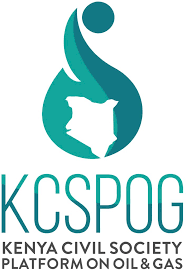The Evolving Extractives Sector: Reflections from the 11th Alternative Mining Indaba and the Investing in African Mining Indaba February 2020 Conferences

In February 2020 Oil, gas and mining African government ministers, companies, academia and civil society organisations assembled in Cape Town for the annual Investing in African Mining Indaba (African Indaba) and the Alternative Mining Indaba (AMI). While the two conferences run independently it was wonderful to see that company executives and civil society representatives attended sessions in both conferences. The opportunity, presented by the indabas, to interact in itself is vital in creating a Sustainable Mining Sector and sets the stage for meaningful engagement.

The AMI focused on environmental and economic sustainability in the mining sector in the backdrop of concerns over climate change. From the deliberations, the role of indigenous peoples in climate change adaptation and mitigation was highlighted. Of particular interest was a panel session which included a crop scientist who highlighted the importance of research on the properties of indigenous plants in reversing water and soil pollution. From practice, indigenous people understand their lands and the rich biodiversity thus the discourse in the extractives industries should tap into their knowledge to find solutions to environmental challenges. When advocacy by communities and civil society actors is backed by scientific evidence- there are better outcomes for the host communities and for the planet.
The African Indaba focused on the changing nature of the extractives industries. For instance, the shift to a renewable energy reliant economy will automatically lead to an increased demand for batteries. It is projected that the demand for battery metals: lithium, copper and zinc will increase tenfold in the next 50 years- this directly results in increased mining. Due to technological advancement mines will become highly mechanised. While more land will be taken up for mining, host communities cannot continue counting on employment in the mining industry. This situation poses a dilemma for governments- as highlighted by the World Economic Forum the nature of work will change. Civil society actors, Academia and Government need to be aware and rethink how local economies that would conventionally depend on direct employment within the extractives industries will change.
It is a challenge for both academia and civil society to rethink host community beneficiation and strategize on how economic rights will be promoted while keeping in-sync with the advanced mechanisation. The discussion on local content should evolve from the traditional job quota system to include a training strategy and expanding the role of extractives industries linking sectors.
In addition to the technical and scientific discussions companies are actively working to simplify their self-regulatory systems. While there is merit in the argument that simplifying regulation and authentication systems will ensure greater compliance, we must work to ensure that this move pushes companies to practise more responsible behaviour. The Initiative for Responsible Mining Assurance (IRMA) is working on creating protocols to enable companies simultaneously comply with multiple standards. Currently, the Responsible Jewellery Council (RJC) and Towards Sustainable Mining (TSM) are working on a joint protocol. In addition to this, various IRMA members at different parts of the supply chain- upstream; midstream and end-user- will start working on cross-cutting protocols based on thematic areas. These developments highlight the evolving nature of legislation in the extractives sector and it is highly probable that the next frontiers in legal evolution will be developing protocols for standards of international financial institutions such as the International Finance Corporation’s Performance Standards on Environmental and Social Sustainability and the African Development Bank Group’s Integrated Safeguards System.
The Indabas presented a picture of a changing world while sounding a wake-up call for all players to adapt. KCSPOG traditionally focuses on upstream oil and gas issues however, our approach ought to evolve and include work in mining and climate change areas. Further, we should continue working on cross-cutting issues including local content and approach them with a broader vision and understanding of the changing nature of global economies.
